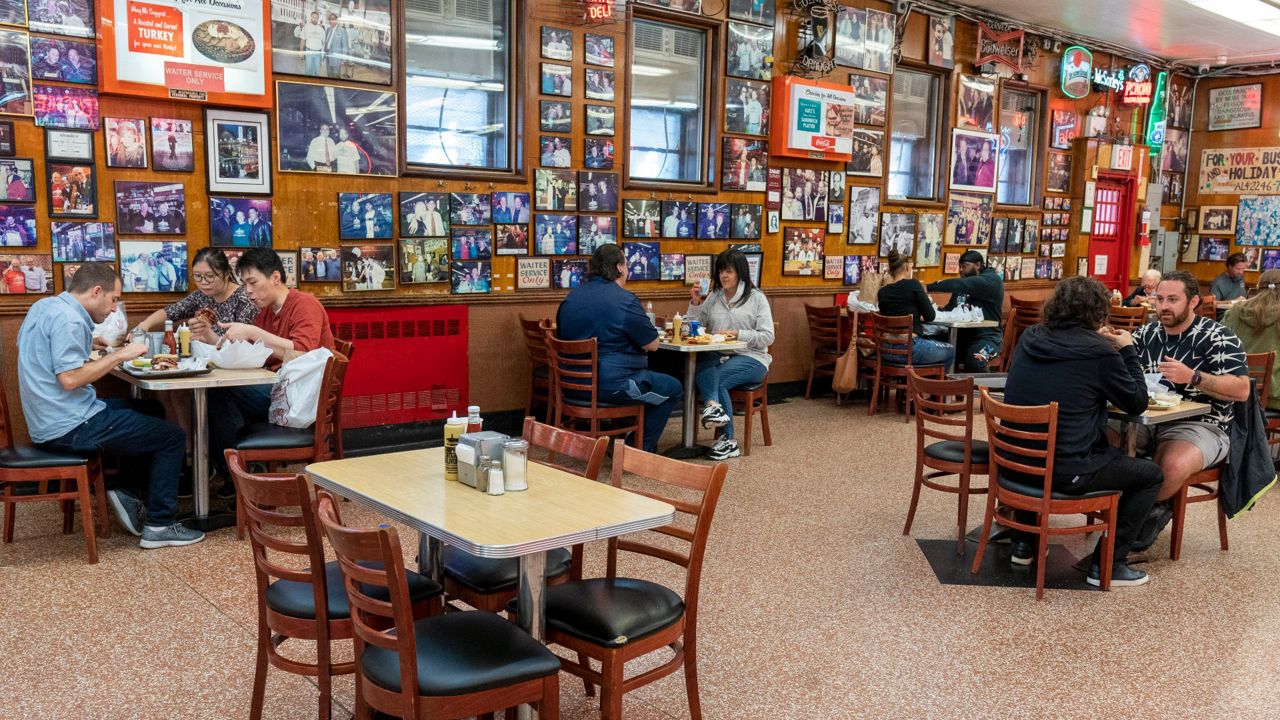Indoor dining will be suspended in New York City beginning Monday as hospitalizations continue to climb, Gov. Andrew Cuomo announced Friday.
"The hospitalizations continue to increase in New York City," Cuomo said. "We said that we would watch it. If the hospitalizations didn't stabilize, we would close indoor dining. It has not. We're going to close indoor dining on Monday."
According to data released by the city Friday, the daily number of hospital admissions for COVID-19 hit 205, climbing above the threshold of 200. The number of new cases on a seven-day rolling average is 2,559. The seven-day average is at 5.35%, which is also above the city’s threshold of 5%.
Outdoor dining, takeout and delivery will be allowed to continue.
Mayor Bill de Blasio said he backs the governor's decision.
"This is painful. So many restaurants are struggling," he tweeted. "But we can't allow this virus to reassert itself in our city."
The announcement is a big blow for the restaurant industry, which has been struggling since the beginning of the pandemic in March. It was only in September that restaurants were allowed to reopen their dining rooms at 25% capacity. The fear is that the latest shutdown will lead to layoffs.
"It will be the last straw for countless more restaurants and jobs," Andrew Rigie, executive director of the NYC Hospitality Alliance, said in a statement. "And the restrictions begin on Monday with zero economic support for small businesses that are already struggling to survive."
A new survey from the New York Restaurant Association found 54% of New York restaurants do not expect to survive the next six months without some form of federal relief, compared to 37% of restaurants nationwide.
“I think it’s very bad for everybody cause everybody’s got to make a living,” Edwin Norteye, who delivers bread to city restaurants, told NY1.
“If everything shuts down I don’t know what we’re going to do,” he added.
The announcement comes as new contact tracing data released by the governor found that bars and restaurants are responsible for just 1.43% of the spread. Household gatherings are the biggest culprit, with 74% of the spread linked to people meeting in their homes.
Indoor dining will be allowed to continue in other parts of the state where the infection rates are climbing.
"New York City is different," Cuomo said. "A high transmission rate in a dense environment is different."
"You can't eat and drink and keep your mask up," he added.
The governor is calling on the federal government to provide relief for restaurants in a stimulus plan that still remains stalled in Congress. He said the state will extend its moratorium on commercial evictions. But beyond that restaurants have been left with little help as they've been forced to bear the brunt of coronavirus restrictions.
"Yes, there will be an economic hardship from 25% to 0, but we have compensated in other ways," Cuomo said. "This is a situation that has affected every business community, not just restaurants."
"We're asking everyone to hold on," Cuomo added. "The end is in sight, but we still have to get there."
The city has allowed for expanded outdoor dining, but it remains to be seen how successful it will be as the temperatures continue to drop.
Meanwhile, Cuomo announced gyms and hair salons in orange zones will now be allowed to operate at 25% capacity with weekly testing of staff.
Those businesses, according to Cuomo, are responsible for only about 0.06% of the spread.
"Gyms are one of the lowest known spreaders now, by the facts," Cuomo said.
As for the race to vaccinate people, the governor said a state panel has signed off on the FDA's decision to approve a COVID-19 vaccine.
Cuomo said in addition to the Pfizer vaccine, which is expected to arrive this weekend, 346,000 doses of the Moderna vaccine will be delivered the week of December 21.
The governor said the current spike in cases will likely be a problem through January as people gather for holiday events.
He said the crisis will end once the vaccine hits critical mass, which could take at least until June. Cuomo warned it will be a "long six months."



